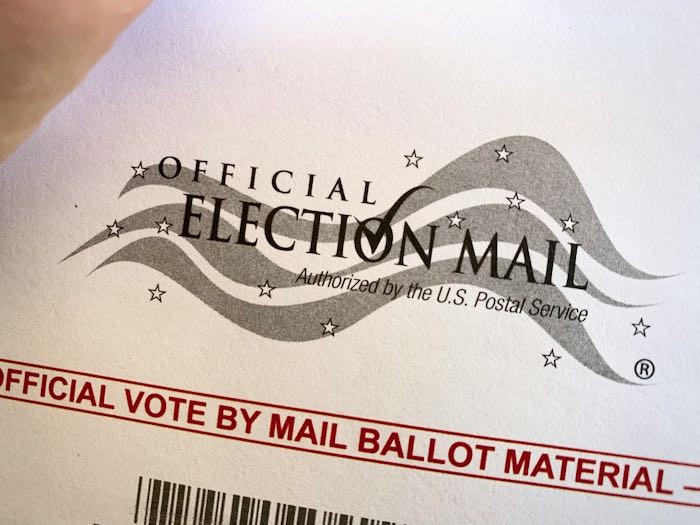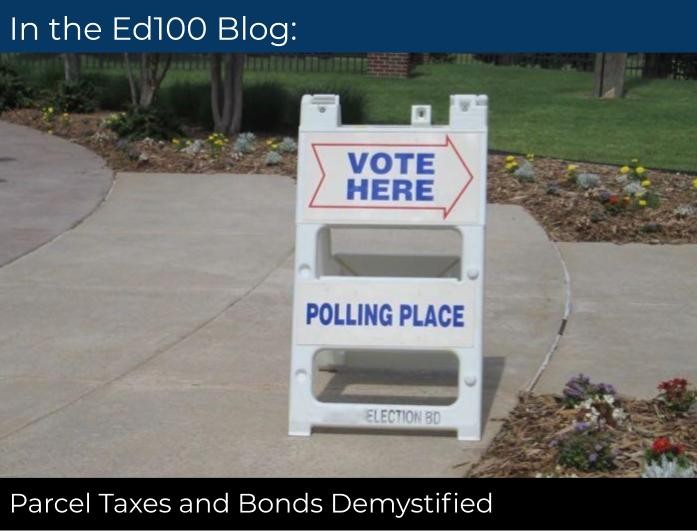Paying Back, Voting Forward

Election Day Approaches
My vote-by-mail ballot is staring at me. I will fill it out soon, I promise. I usually start my ballot research using VotersEdge, a nonprofit, nonpartisan project of the League of Women Voters.
The Democratic presidential primary is occupying most of the limelight this month, fueled by massive ad spending by the campaigns. But this election is consequential for other reasons, too. The March ballot includes far more than the presidential primary.
Crucial Votes for Education
When it comes to education, the most important item is Proposition 13 (2020), which the state legislature placed on the ballot with nearly unanimous bipartisan votes. If passed, it will provide state funds to support local construction and renovation of public schools and colleges throughout the state. You can learn a lot more about Prop 13 (2020) in our blog.
On the same ballot, voters in some school districts will also decide whether to support a local school bond measure. In many cases the votes will be connected because state school construction bonds, including this one, are structured as matching funds.

In a handful of school districts, voters will also choose whether to support their local schools with a parcel tax. These measures are not for construction or facilities — instead they pay for teachers and other costs of operating schools. Parcel taxes are difficult to pass because they require a ⅔ supermajority of votes. Effectively, it takes two yes votes to counteract one no vote.
Campaigns
School districts depend on these measures passing, but they cannot campaign for them.
Donor and Volunteer Fatigue
Elections matter. To influence the outcome, individuals and interests exercise their right to speak — and the power of "speech" is amplified with dollars. Some predict that the total expenditures just on advertising in the 2020 elections will reach $10 billion.
Leaders of nonprofit organizations look on with a mix of professional admiration and frank jealousy, imagining all the good they could do with such lucre. As recently as 2016, there was little evidence that political donations were displacing nonprofit donations, but the numbers have continued to expand. At some level, generosity is zero-sum. Donors ask themselves: will I do more good by donating to support a candidate, or by donating to support a nonprofit organization?
Tags on this post
ElectionAll Tags
A-G requirements Absences Accountability Accreditation Achievement gap Administrators After school Algebra API Arts Assessment At-risk students Attendance Beacon links Bilingual education Bonds Brain Brown Act Budgets Bullying Burbank Business Career Carol Dweck Categorical funds Catholic schools Certification CHAMP Change Character Education Chart Charter schools Civics Class size CMOs Collective bargaining College Common core Community schools Contest Continuous Improvement Cost of education Counselors Creativity Crossword CSBA CTA Dashboard Data Dialogue District boundaries Districts Diversity Drawing DREAM Act Dyslexia EACH Early childhood Economic growth EdPrezi EdSource EdTech Education foundations Effort Election English learners Equity ESSA Ethnic studies Ethnic studies Evaluation rubric Expanded Learning Facilities Fake News Federal Federal policy Funding Gifted Graduation rates Grit Health Help Wanted History Home schools Homeless students Homework Hours of opportunity Humanities Independence Day Indignation Infrastructure Initiatives International Jargon Khan Academy Kindergarten LCAP LCFF Leaderboard Leadership Learning Litigation Lobbyists Local control Local funding Local governance Lottery Magnet schools Map Math Media Mental Health Mindfulness Mindset Myth Myths NAEP National comparisons NCLB Nutrition Pandemic Parcel taxes Parent Engagement Parent Leader Guide Parents peanut butter Pedagogy Pensions personalized Philanthropy PISA Planning Policy Politics population Poverty Preschool Prezi Private schools Prize Project-based learning Prop 13 Prop 98 Property taxes PTA Purpose of education puzzle Quality Race Rating Schools Reading Recruiting teachers Reform Religious education Religious schools Research Retaining teachers Rigor School board School choice School Climate School Closures Science Serrano vs Priest Sex Ed Site Map Sleep Social-emotional learning Song Special ed Spending SPSA Standards Strike STRS Student motivation Student voice Success Suicide Summer Superintendent Suspensions Talent Taxes Teacher pay Teacher shortage Teachers Technology Technology in education Template Test scores Tests Time in school Time on task Trump Undocumented Unions Universal education Vaccination Values Vaping Video Volunteering Volunteers Vote Vouchers Winners Year in ReviewSharing is caring!
Password Reset
Search all lesson and blog content here.
Login with Email
We will send your Login Link to your email
address. Click on the link and you will be
logged into Ed100. No more passwords to
remember!














Questions & Comments
To comment or reply, please sign in .